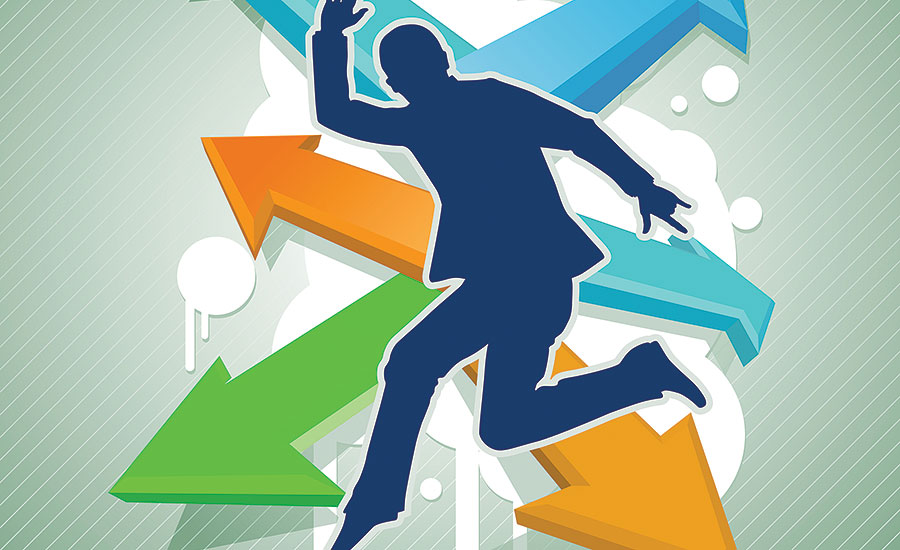The rally cry of being your sister’s and brother’s keeper is an old saw in the workplace safety world. We need to have each other’s back. Need to be interdependent, not independent. Go beyond the call of duty and actively care for one another. This is how you build trust, teamwork, engagement, empathy, values, culture and superior safety performance on the job.
The changing face of the U.S. workforce will challenge and test these long-held job safety beliefs. You can’t ignore 53.5 million workers, and that’s the number of so-called millennials (age 18 to 35) that were in the workforce in the first quarter of 2015. With the baby boomers (age 51 to 70) retiring, millennials now make up the largest percentage of the American workforce – 34 percent compared to the boomers’ 29 percent.
Can culture and churn co-exist?
And there are characteristics ascribed to millennials through research that make you wonder how accepting many will be of long-held safety attitudes and behaviors. A study, “The 2015 Millennial Majority Workforce,” finds that 58 percent of millennials expect to stay in their jobs fewer than three years. How do you build and sustain a work culture with that kind of churn?
The Pew Research Center released a report this fall showing only 24 percent of millennials consider themselves responsible. So how does that translate into accountability for safety? More than half of millennials surveyed, 59 percent, describe their generation as “self-absorbed” and 49 percent say they are “wasteful.” Only 35 percent of millennials say they are “hard working.” Not exactly encouraging stats for workplace safety volunteer work, signing up for safety committees, and tackling activities ranging from observation and feedback sessions to incident and near-miss reporting and serving on incident investigation and auditing teams.
The Pew study also found only 29 percent of millennials consider themselves compassionate people. That doesn’t bode well for actively caring for co-workers and taking on safety coaching roles.
Societal changes
Why do millennials have this apparent low self-esteem? The reasons are trends in our society that affect the attitudes and behaviors of more than just the millennials. Globalization and the outsourcing and off-shoring of millions of jobs has increased job insecurity, ruin the loyalty bonds between many employers and employees, and it has put a comfortable middle class lifestyle beyond the reach of many workers age 21 to 40 or 45.
Without anything close to the idea of secure lifetime employment or working for one company for 10, 20 or more years, this is the age of “You, Inc.” Employees in the early years of their working lives are often told that no one has your back, nothing is guaranteed, so you are in effect your own one-person business. You need a personalized business plan, and if that means jumping jobs every three years or so, well, that’s not the black mark it once was.
“You, Inc.” means many more workers will carve out careers as independent contractors and freelancers. In part because they must – many companies in 2105 are loathe to add to full-time payrolls and dole out health benefits. One survey finds 79 percent of millennials say they would “consider quitting their regular job and working for themselves.”
The new normal
Keeping workers safe on the job is up against daunting challenges. As a recent New York Times essay said, the people who can compete and succeed in today’s highly competitive employment environment are an ever-narrower slice of American society. The lifestyle model for past generations – in which one partner does all the work of earning an income and the other partner does all the work of turning that income into the care of children and the sick, disabled and elderly – doesn’t stand up to modern economic realities.
So you have public health experts lamenting workforce anxiety attacks, depression, exhaustion, distractions, work-life imbalances and widespread stress. (According to one study, a quarter of young people are struggling with mental illness.) Safety pros will be taxed by these trends for years to come, and workplace regulators such as OSHA will be forced to address mental health and stress disorders in ways it never has before, resembling how the European Union and countries such as Canada and Sweden have worked to de-stigmatize these modern maladies.
The rest of the story
There are several more hopeful caveats to this scenario. One, American has long been built on small businesses, millions of them. And in small enterprises, family-owned businesses, it’s always easier for workers and managers to be on a first-name basis with each other, to have friendships at work, to still take families to company picnics or have coworkers over for dinner. When work bonds are tighter and more secure, trust, empathy, caring and other bedrocks of safety cultures exist at higher levels.
And speaking of cultures, millennials place a strong, personal value on work environments that are values-driven. In one survey, 62 percent of millennials say they want to work for a company that makes a positive impact; half prefer purposeful work to a high salary, and 53 percent would work harder if they were making a difference to others. Millennials define themselves more by their interests and passions than past generations.
Research shows 79 percent of millennials define success as “doing what you are passionate about.” Millennials want to make a difference. Their passions can run from the environment, social justice, poverty and the planet. Workplace safety has always been an emotional, passionate issue (which is why many executives prefer to ignore it or put it in a “compliance” box). Safety pros have the opportunity to tap into the passionate, purpose-driven nature of millennials.
There are always solutions to perplexing puzzles. Today’s work world is, among many other traits, perplexing and confounding. And safety pros are savvy and resourceful enough to flex with the times, learn from the times, and find success amid the changes and new realities.







